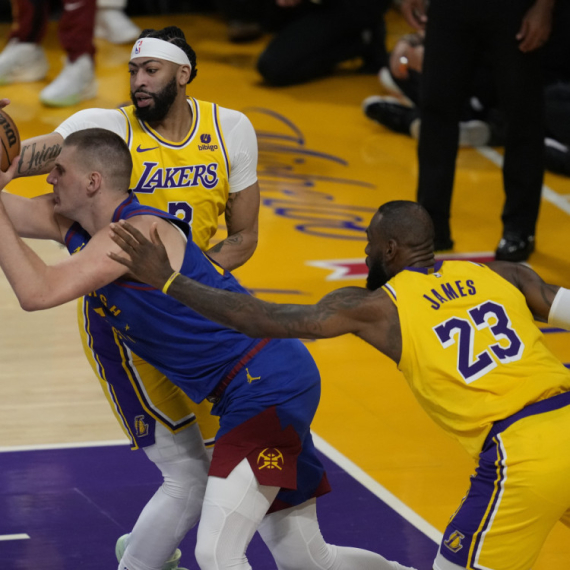Dinar hits 2008 record low
The domestic currency has fallen to its lowest value since the beginning of the year, with today’s exchange rate at RSD 84.47 to one euro.
Tuesday, 28.10.2008.
12:50

The domestic currency has fallen to its lowest value since the beginning of the year, with today’s exchange rate at RSD 84.47 to one euro. The dinar continues to fall despite the interventions of the National Bank of Serbia (NBS) on the inter-bank foreign currency market with EUR 26mn. Dinar hits 2008 record low The dinar’s lowest value prior to today’s slide was on May 12, the day after the parliamentary elections, when the euro was worth RSD 83.86. NBS Governor Radovan Jelasic told B92 that he could not predict when the dinar would stabilize. “There is no set figure. If there was, it would not be a floating exchange rate. Then those speculating would get rich overnight here, so it would be better to just give blank checks to world speculators, who know exactly what level it will go to. All we know is that the daily fluctuations should not reach one dinar or a dinar and a half. Because, if such fluctuations occur, the market will literally stop,” Jelasic said. He said that the main reason for the slide was the withdrawal of foreign investors from Serbia. “What we have here is the withdrawal of surplus financial assets that foreign investors have, who planned an investment in three or six months’ time, and were told—give the money back first, and then we will see, in three or six months, what we will do and how. Moreover, there is a current dearth of money in company headquarters, not to mention in the countries of our region,” Jelasic said. Economic expert Miroslav Zdravkovic points out that the NBS governor said that the dinar would stop falling once it reached RSD 90 per euro. “I expect the rate to freely form somewhere on the RSD 87 or 88 level, and as far as the banks go, it is not in their best interests for the dinar to fall as their capital is expressed in dinars, so that when the dinar falls it means their capital is melting away too,” he said. He said that the slide would most likely stop at RSD 90. “I would not like the dinar to get stronger again because this is a good correction: it helps those who have savings and who export, and at the same time hurts import and those who make their profits based on imported products and it hurts all those who took out loans in euros,” Zdravkovic explained.
Dinar hits 2008 record low
The dinar’s lowest value prior to today’s slide was on May 12, the day after the parliamentary elections, when the euro was worth RSD 83.86.NBS Governor Radovan Jelašić told B92 that he could not predict when the dinar would stabilize.
“There is no set figure. If there was, it would not be a floating exchange rate. Then those speculating would get rich overnight here, so it would be better to just give blank checks to world speculators, who know exactly what level it will go to. All we know is that the daily fluctuations should not reach one dinar or a dinar and a half. Because, if such fluctuations occur, the market will literally stop,” Jelašić said.
He said that the main reason for the slide was the withdrawal of foreign investors from Serbia.
“What we have here is the withdrawal of surplus financial assets that foreign investors have, who planned an investment in three or six months’ time, and were told—give the money back first, and then we will see, in three or six months, what we will do and how. Moreover, there is a current dearth of money in company headquarters, not to mention in the countries of our region,” Jelašić said.
Economic expert Miroslav Zdravković points out that the NBS governor said that the dinar would stop falling once it reached RSD 90 per euro.
“I expect the rate to freely form somewhere on the RSD 87 or 88 level, and as far as the banks go, it is not in their best interests for the dinar to fall as their capital is expressed in dinars, so that when the dinar falls it means their capital is melting away too,” he said.
He said that the slide would most likely stop at RSD 90.
“I would not like the dinar to get stronger again because this is a good correction: it helps those who have savings and who export, and at the same time hurts import and those who make their profits based on imported products and it hurts all those who took out loans in euros,” Zdravković explained.


























































Komentari 0